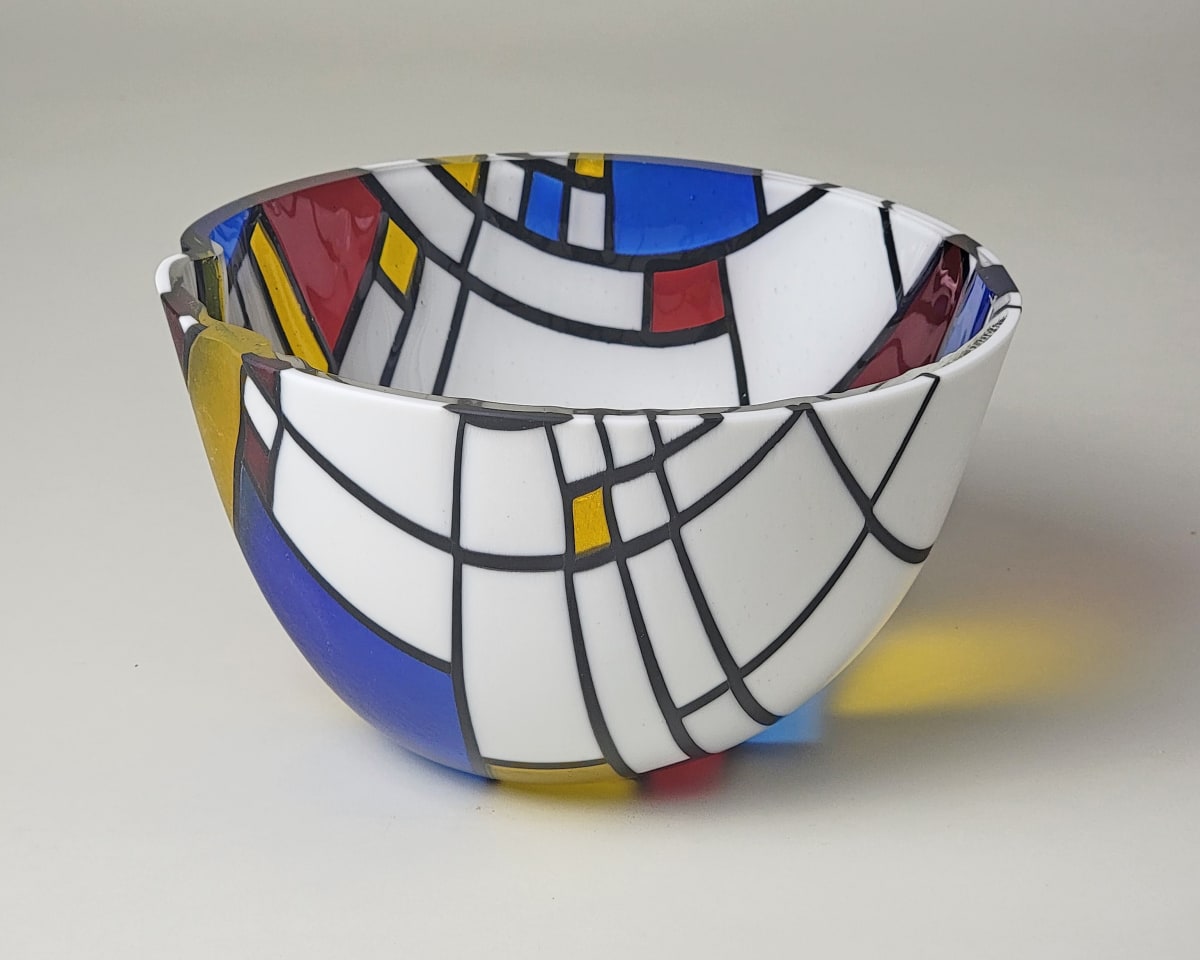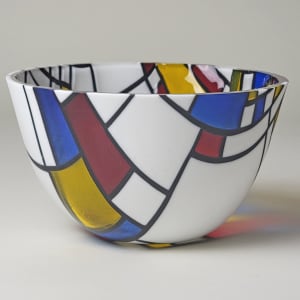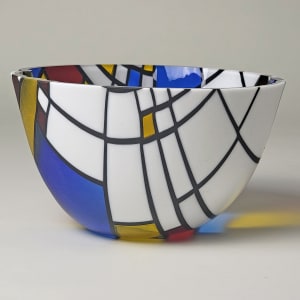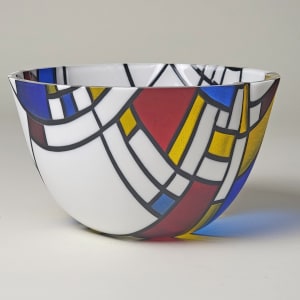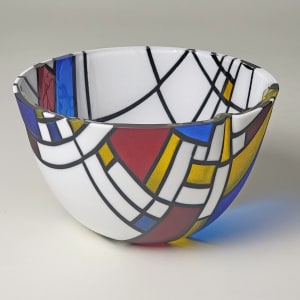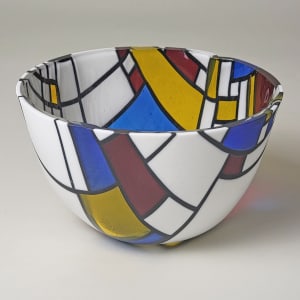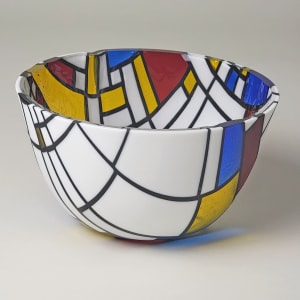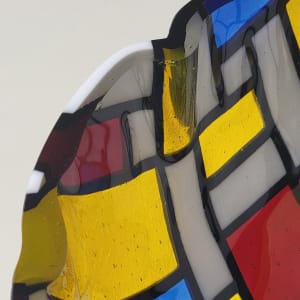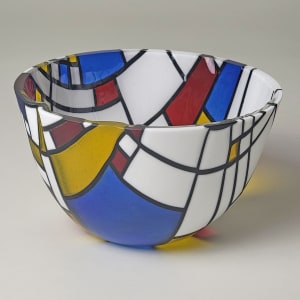- Jim Scheller
- Vessel Composition 5
- Kilnformed Glass
- 6 x 9.75 x 9.75 in
- Edition #3
- $500
- From Vessel Composition 5
This kiln-formed glass bowl is a sculptural interpretation of Piet Mondrian’s geometric abstraction, transforming his signature primary colors, intersecting lines, and asymmetrical balance into a dynamic three-dimensional form. Inspired by the De Stijl movement, the design moves beyond Mondrian’s traditional flat compositions, embracing curvature and spatial depth while preserving his structured visual language.
Curved Geometry & Dynamic Movement
Unlike Mondrian’s rigid grid-based paintings, this vessel introduces fluidity and movement through its gently curving form. The interplay of arcs and intersecting lines creates a seamless wrap-around effect, inviting viewers to explore the piece from multiple angles. This subtle departure from strict perpendicularity echoes later De Stijl evolutions, particularly Theo van Doesburg’s Elementarism, where diagonal and curved forms introduced a sense of motion.
Interplay of Color, Light & Reflection
Vibrant blocks of red, yellow, and blue contrast sharply against black lines and crisp white space, mirroring Mondrian’s bold yet balanced aesthetic in works such as "Composition with Red, Blue, and Yellow" (1930), "Tableau I" (1921), and "Composition No. II" (1920). The translucent glass sections allow light to pass through, casting vivid reflections that shift depending on the viewing angle, much like the layered relationships of color in Mondrian’s compositions. This interplay of light and shadow enhances the sense of movement, making the artwork an evolving experience throughout the day.
Balanced Asymmetry & Contemporary Expression
True to Mondrian’s philosophy, the design achieves harmony through dynamic tension, where carefully placed shapes and colors create a sense of equilibrium within asymmetry. The three-dimensional nature of the vessel offers a contemporary reimagining of Mondrian’s principles, bridging historical abstraction and modern glass artistry.
This piece is both a tribute to Mondrian’s revolutionary vision and an innovative extension of his ideas, capturing the rhythm, contrast, and purity of geometric abstraction in a tactile, luminous form.
- Collections: Vessel Compositions
